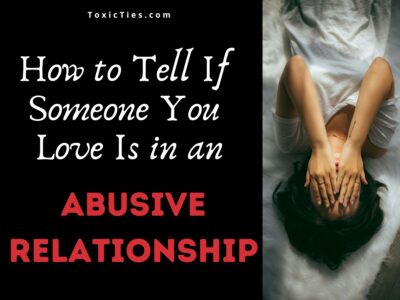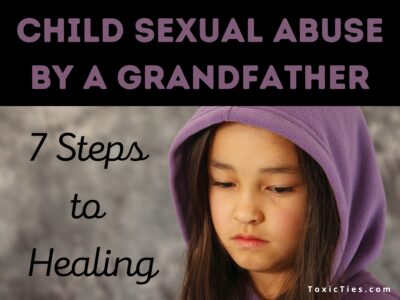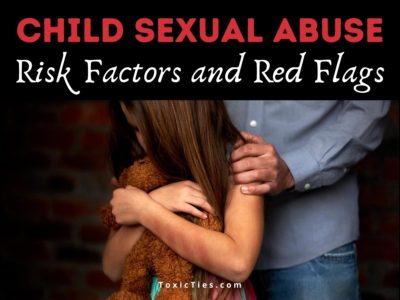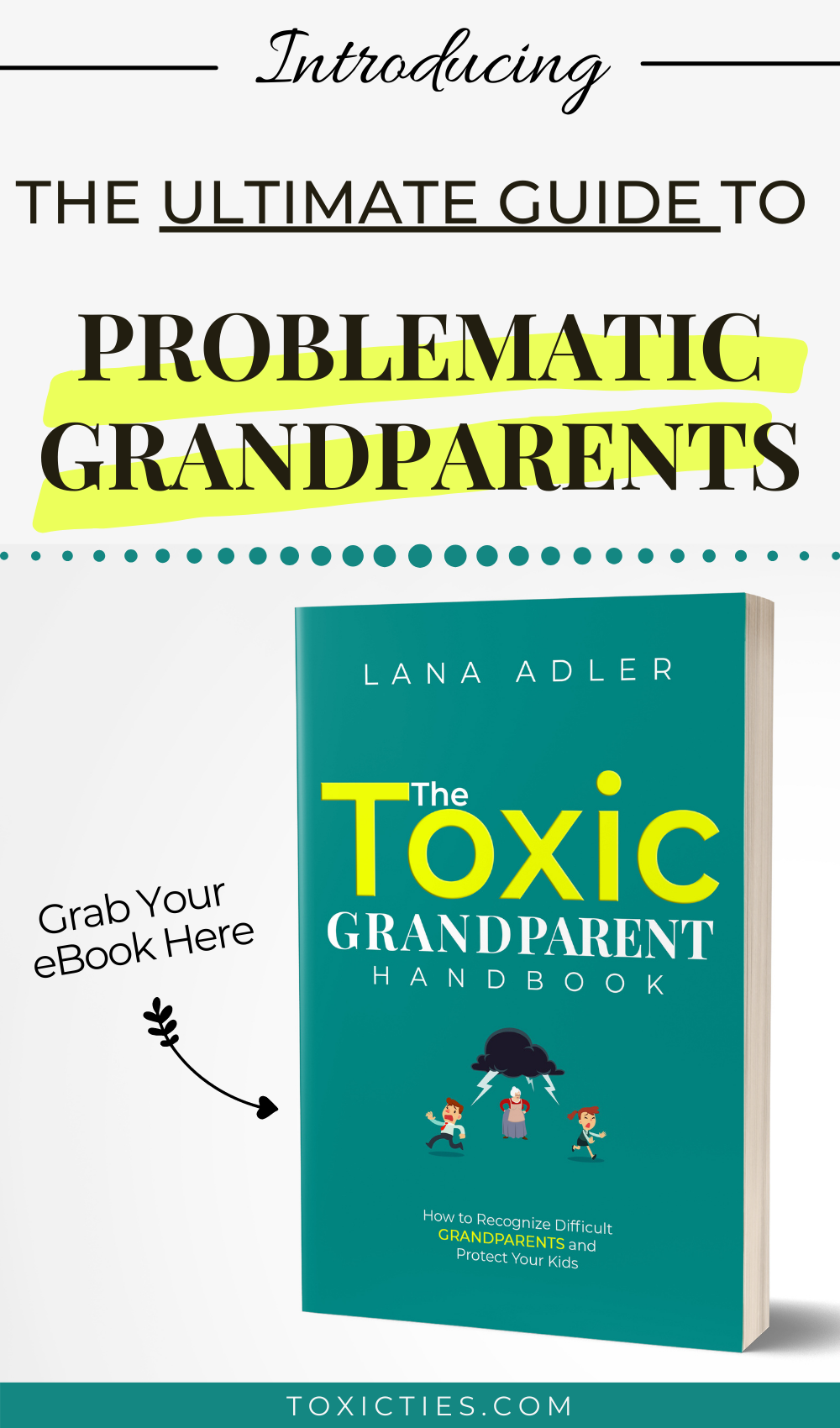A trauma bond is a toxic relationship that is forged out of pain, abuse, and codependency.
It’s often a romantic relationship, but it can also be a relationship with a parent, sibling, or even a friend.
Similar to Stockholm Syndrome when captives become emotionally attached to their captors, people in abusive relationships become attached (or trauma-bonded) to their abusers.
This is one of the paradoxes of human nature.
You would think that abuse should be the reason to leave a relationship.
Instead, in trauma bonded unions abuse is the very thing that holds the relationship together.
Why Trauma Bond Relationships Are So Intense
Trauma bond relationships are intense because they follow the abuse cycle.
The abuse cycle, defined in the 1970s by psychologist Lenore Walker, consists of 4 parts:
- building of tension
- incidence of abuse
- reconciliation
- calm
So a person goes through an emotional rollercoaster of devastating lows (tension, abuse) and ecstatic highs (reconciliation, calm).
No matter how bad the abuse is, the outpouring of love and attention during a reconciliation stage and the idyllic calm period that follows makes the victim stay with the abuser and even become addicted to the vicious cycle.

The 4-Stage Cycle of Abuse
Let’s take a closer look at the 4-stage cycle of abuse to understand the mechanism of addiction involved in a trauma bond relationship.
1. Building of tension
This is the stage that leads to the abuse when there are an unspoken dread and tension in the air.
Both the abuser and the victim can feel it, though not necessarily on a conscious level. They know what will soon happen.
The abuser starts showing a lot of frustration. They appear to be in a bad mood all the time. The stress or anger is looking for an outlet, and anything can set them off.
The victim knows their partner is on edge and tries to be “on their best behavior” to prevent the blow-up. They can be extra accommodating or extra careful about the things they say.
2. Incidence of Abuse
This is when the tension erupts and the abuser unleashes their rage on their partner. It can involve one or several forms of violence such as:
- physical abuse (hitting, slapping, punching, kicking, pinching)
- sexual abuse (rape, harassment, unwanted advances, or comments)
- emotional abuse (putdowns, name-calling, yelling, guilt-tripping, the silent treatment, threats, and other forms of emotional manipulation)
Again, abuse doesn’t have to be physical to be abuse.
We all have that mental image of a wife with a black eye, and that’s what domestic violence looks like to us.
But abuse isn’t always obvious or visible. In fact, it’s often a lot more subtle than a black eye.
Abuse is also not limited to marriage. It can be violence between a girlfriend and boyfriend, LGBTQ partners, parents and children, adult children and elderly parents, or between siblings.

3. Reconciliation
After the abuser has released the tension, they feel better. But they also feel guilty or at least fearful that you’ll leave them.
So after they dragged you into the depths of hell, they have to bring you back up again.
This is the stage where an abusive partner may show deep remorse. They may cry, beg for your forgiveness, and promise to never hurt you again.
More cynical abusers may simply try to smooth things over as soon as possible to ensure that you’re still under their control.
Hence, the commencement of the “honeymoon phase” where they flood you with love and attention.
This stage is crucial to a trauma bond relationship because it’s the high that ensures the addiction. It’s pure ecstasy when you feel pleasure hormones dopamine and oxytocin rushing through your veins.

4. Calm
This is the stage when the abuser and the victim are in homeostasis again. The abuser is calm after the release they received, and the abused is reassured that it won’t happen again.
During this stage, your partner will be particularly kind, loving, thoughtful, and attentive to your needs. It’ll feel so good that you’ll want to forget or explain away the abuse.
It’ll feel like this is the real “them,” that they’ve learned from their mistake, and that your relationship is better than it’s ever been.
There is delusional serene confidence to this phase when you feel like all your troubles are behind you and that the love you have for each other is worth the occasional turbulence.
7 Signs of a Toxic Trauma Bond Relationship
The 4-stage cycle of abuse is a good theoretical framework for understanding a toxic relationship.
But abuse doesn’t always follow a linear pattern. Emotional abuse in particular can be ongoing rather than cyclical.
So what are some other signs that you may be in a toxic trauma bond relationship?

There’s always drama in your relationship
The best way to sum up a drama-ridden relationship is: the highs are really high, the lows are really low, and there’s no middle.
One or both partners aren’t comfortable with just staying still with one another, so it’s either up or down, love or hate, tearful breakups or bed-breaking make-up sex.
They think that drama equals passion so they distract themselves with exaggerated emotions to escape the emptiness of their relationship.
Something trivial can be turned into a huge issue, resulting in high emotions, threats of suicide, love proclamations, and dramatic gestures.
And where are you in this? Well, a part of you is probably enjoying the intensity of the relationship. It’s never boring, right?
And another part of you is scared and feels trapped.
You have to walk on eggshells
Usually, the abuse happens when you do or say something that sets your partner off.
So you feel like you have to walk on eggshells or constantly appease them to prevent another fight.
For example, abusive partners usually have a jealous streak. So, let’s say they got jealous because you talked to someone at the party for too long. Or you didn’t tell them where you were going and they felt disrespected.
These situations are not inherently malicious but your partner’s reaction makes you feel like you’ve done something terrible. They may be guilt-tripping you by saying that you hurt them, and you don’t care, how can you be so cold, etc.
It’s always something, right?
The reasons are unimportant. What’s at the core of these interactions is your partner’s desire to control you and their total inability to process and express their emotions in a healthy way.
So the fear of your partner’s reaction is forcing you to constantly edit yourself or lie about your whereabouts just to avoid another heated discussion about it.

The relationship satisfies deep unconscious needs
It’s not easy to identify your unconscious needs or why you’re staying in a toxic relationship. Still, you can make some educated guesses.
For the abuser, the relationship can be a way to satisfy his/her need for control, a sense of superiority, and maybe some more tangible needs, like in cases of financial abuse.
For the abused, there may be a deep need for connection and safety, even though a trauma bond relationship isn’t particularly safe.
Still, if that’s what you’re used to (through childhood abuse or other past traumatic experiences), a toxic relationship will feel familiar and safe.
If you’re an empath, you may also have a deep need to be needed and to help others. This is why a lot of empaths end up in toxic relationships: they fall into the “s/he needs me” trap and feel too guilty to let go of the person they’re trying to fix.

You can’t break it off
You keep breaking up and getting back together. When you break up, it’s always for a good reason and you’re sure that this time it’s for good.
But eventually, you start feeling that familiar “pull” again. You might agree to meet up “as friends” or for some other innocent reason.
When you meet, they’re giving you their best charming self, which makes it even worse.
They also seem to be in a good place emotionally, which makes you think that they’ve actually changed this time.
This is all a part of the cycle.

You feel like that’s the best you can get or the best you deserve
When you’re in a toxic trauma bond, your partner wants you to think that your relationship is a special, one-of-a-kind, once-in-a-lifetime love.
It makes it easier to justify the abuse (“I just love you so much,” “You drive me crazy,” “We have to be together or I’ll kill myself”).
They also want you to believe that no one will ever love you as much as they do.
The drama and the intensity may be exhausting but it also serves an important purpose: to make you believe that they love you with such passion that you’ll be a fool to let them go.
I’ve written about a personal experience with a toxic boyfriend before. During our numerous breakups, he liked to say: “You’ll never find anyone better than me.”
I believed him for a long time. Until I finally decided to let him go for good and take my chances. About a year later I met my husband.
I still think about my ex sometimes… Mostly when I write about toxic relationships.
I’m always amazed at how willing I was to accept his narrative, and how quickly the spell was broken once I started believing that I deserved better.

Your friends are concerned and encourage you to end it
I’ve mentioned the toxic partner’s tendency to label your relationship as special or once-in-a-lifetime.
No one else can understand what the two of you have.
So when friends and loved ones start voicing their concerns about your partner, you brush it off because they just don’t get it.
Your connection transcends space and time. Who can fathom the depth of love you have for each other?
It’s true that only you and your partner can know what your relationship is about. No one has a right to judge it from the outside.
But when the relationship is toxic, the optics are reversed. The people in the relationship can’t see it clearly, and the people on the outside have a 20/20 vision.
So your friends and family are maybe becoming more vocal about their dislike of your partner. They could be voicing dire warnings or even directly asking you to end the relationship.
It may come to a point where you feel like you have to hide your relationship because you don’t want to hear another lecture.
When the people who love you are concerned, listen to them, especially if deep inside you’re having the same doubts about your partner. It may be a clear sign that you’re in a toxic trauma bond relationship.

You’re becoming isolated and you have no one you can talk to
Another sign of a toxic trauma bond relationship is when your partner starts isolating you from other people in your life.
It can happen because
- Some friends of yours find your partner’s behavior repulsive and they made their opinion known to you
- Your partner doesn’t want to share you with anyone, which is an expression of extreme jealousy and possessiveness
- Your partner doesn’t want anyone to know about what takes place in your relationship
They may be justifying their actions with things like
- Your friends don’t like me because you tell them terrible things about me
- Our relationship is private, don’t talk about it
- They don’t understand what we have
- They have it out for me because they want to see me suffer (persecutory delusions, if you’re dating a narcissist)
- I trust you, I just don’t trust those other people
- I want to spend more time together, just us
This isolating process can be really subtle in the beginning. But with time, it escalates to the point where you feel like a captive in your relationship. This is a clear sign that you need to get away.

Final Thoughts on a Trauma Bond Relationship
Identifying a trauma bond relationship can be a frightening and confusing experience because you have conflicting feelings for your partner.
On the one hand, you have love and a deep longing for them. You never seem to be able to stay apart for too long.
On the other hand, you have a nagging feeling that your friends may be right. There is an unhealthy side to your relationship. It may even be a trauma bond relationship.
So what can you do?
It’s not easy to break a trauma bond. But I can tell you with confidence that it’s possible. You can do it if you choose to.
The very fact that you’re reading these words is a sign that you’re ready and that you’re strong enough.

Resources
Rakovec-Felser, Z. (2014). Domestic Violence and Abuse in Intimate Relationship from Public Health Perspective. Health psychology research, 2(3), 1821. https://doi.org/10.4081/hpr.2014.1821








it’s good to read your helpful words and reaffirm the importance of what I have learned since my last tricky relationship…
Boundaries are so important (and perhaps u could add more about this re details to your article)
I’m not sure why I keep meeting relationships like this… maybe because the statistics are so high like 1 in 10 people being narcissistic?! What a nightmare …and it can be difficult to see and navigate, especially in the beginning, and when it seems so hard sometimes to meet people you really click with.. let alone want to have sex with… I have been through this several times and this last guy was so extreme, the red flags were flying, but we hope for passion and love 💖✨
Look out for the red flags. Crucially, love yourself and put strong boundaries in place (this is what I’ve had to learn and has saved me), aim to build a friendship before letting yourself go emotionally.
Don’t let it break you and let’s keep loving in life 💕✨☀️
The last article I just read just now. Is a confirmation and also the article about female covert narcissism. I’m in the process of ending a 32 year marriage because it has become so toxic and abusive. This is the first time I have ever responded to an article. I am just blown away buy these revelations of who my ex-wife is and was. I did lose a lot of friends and family members. And I just allowed it to happen. I tried to keep my marriage intact. But her controlling and abusive nature emotionally physically verbally and you name it. I’m seeing the light at the end of the tunnel! And I am so grateful for this article or I should say articles. It’s a Sunday night and I’m alone with the dogs and I feel so blessed That I found this article. Thank you and God bless! You don’t know how much God has used you in this. It is a genuine blessing and it really touches my heart and my thinking now. God bless and thank you again.
Thank you so much, Ricky! Your kind comment touched me as well. Good luck on your journey of healing! You are not alone ❤️
Nearly 26 years for me Ricky,so many red flags and friends urging me to leave her,I still love her,even though I have had years of hell,and more especially this past 3 years when we moved to Spain,where she has had so much new supply,and an affair,that has started up again,she’s always been generous but not very loving,always walked on ahead when we’ve been out somewhere,,valued her obsessive friendships more than our marriage,made me feel two inches tall,flirting with other men,she would take on persona and dress sense of her obsessive friendships,she has turned even colder and even HER friends and family have urged me to get away from her toxicity,her ignorance arrogance,ego,selfishness entitlement know no bounds,and have really got worse,,she now wants her new supplies so much,she has made me the most generous offer of settlement,to get out of our union,so she can pursue her new friendships and lover.
Unbelievable but Truth!!
How do I know if I am the problem in the relationship. Twice in our 35 year marriage, my husband passed October 2019, during a disagreement, my husband said he was walking on egg shells. That was the harshest thing he could have said. It stopped me in my tracks. He would not discuss it or tell me instances or in any way that I could change. I am 58 and not even looking to date, I still wear my wedding band. Maybe I am the toxic in a relationship. How would I know?
Thank You for any advice
Anita
Hi Anita,
thanks for asking. That’s a great question! Obviously, I don’t know your relationship so I can’t weigh in on that. However, in my experience, toxic people don’t ask the question: Am I the toxic one? That almost NEVER happens because they are always positioning themselves as the victim in any conflict, or the angry self-righteous one.
I know your husband’s words hurt you deeply and made you question your relationship. It could have been said in a heat of the moment. Or your husband may be expressing his frustration over not being able to communicate openly, hence, “walking on eggshells.” Either way, it’s worth an honest conversation.
The fact that he’s not willing to talk about it makes it more difficult. He’s “stonewalling” – withdrawing himself when the conversation gets too intense or unpleasant and refusing to communicate. Give him some time. Then, when things feel more normal, bring it up gently. Talk to your husband about how his words made you feel, but also let him know that you’re open and willing to work on your relationship, if he is, too. Don’t turn it into a courtroom (“give me examples”), just let him know he can talk to you about things that bother him without the fear of getting you upset.
So I wouldn’t worry about being “toxic.” But I would definitely recommend self-reflection. Do you take things to heart easily? Do you get offended or angry in conflicts as a go-to? Maybe there’s room for improvement there but the same could be said for your husband. When the couple is having trouble with communication, usually both people are contributing to the situation.
Anita, I feel that you love your husband very much and everything’s going to be OK. Everyone goes through weird periods of disconnect or tension. As long as you still make an effort to make each other feel special, loved, heard, and understood, you’ll get through anything.
Sincerely,
Lana
Let me share my own experience of how my husband of 25 years used psychological terminology against me: he never had time for me or the kids, but whenever I consulted a psychologist, he would magically (and very systematically) make the time to have coffee with me. He would ask and take good note of everything I said. He forgot our wedding anniversary 24 times but remembered everything I said about those sessions. He used everything later against me, while projecting, blame shifting and gaslighting. So yeah, I also heard him complain about having to walk on eggshells around me. That I was the eternally unhappy, unfulfilled, angry one.
All that tells you really is that they fully understand what they are doing when they abuse you. It also tells you what they really think about themselves. Get out, lose the wedding band, mend things between you and your inner self, and show him how it’s done without him !